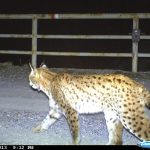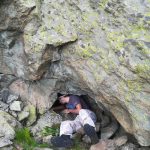With the endeavour to deliver the Prespa region’s first transboundary virtual summer school for students from the three countries sharing the Prespa lakes having come to an end, we cannot help being delighted with the results and grateful for the co-operative spirit in which this summer school on wetland management and monitoring was organised and delivered. The decision to carry out the event completely within an online web environment was imperative, owing to the global health crisis, however, the positive, warmly received outcome for participants and organisers alike can be attributed to the joint efforts and enthusiastic participation of all.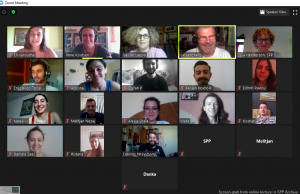
The main objective for the summer school has been to share and explore ways in which to approach wetland management issues, using activities carried out under the Society for the Protection of Prespa’s (SPP) LIFE Prespa Waterbirds project at Lesser Prespa Lake in Greece as a case study, as well as transboundary experience from the work carried out by the PrespaNet environmental NGO network in the “Strengthening NGO-led Collaboration in the Transboundary Prespa Basin” project. In order to achieve this goal, the virtual summer school programme was structured around four types of educational activities: online lectures and discussions, short videos from the field, supplementary reading material and group work.
The summer school was attended by 14 young scientists from a range of environmental fields, such as forestry, biology and ecology amongst others, studying at universities in Greece, Albania and North Macedonia. In addition, observers from the three PrespaNet NGOs – the SPP, MES and PPNEA – were invited to join the online lectures, giving valuable contributions to the discussions on management and monitoring issues of transboundary importance. 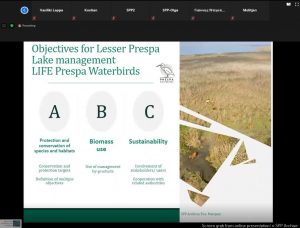
The summer school enabled the main hosts at the SPP to learn a great deal about the ins and outs of putting together such an event in a virtual environment, while also presenting our work on waterbirds, fish, transboundary water collaboration, governance and wetland management. The LIFE project partners Tour du Valat, from France, and the National Observatory of Athens, both contributed highly interesting lectures on their respective work on climate change and wetland vegetation under the project, whilst transboundary wetland habitat mapping carried out through the Agricultural University of Athens for the PrespaNet project was also shared in a stimulating session. Additional lectures were also provided on water quality and management issues by the Hellenic Centre for Marine Research and the Greek Biotope/ Wetlands Centre (EKBY).
In their evaluation of the summer school the students said it was “super interesting”, “productive”, “a fantastic experience where I learned a lot in two weeks”. They particularly highlighted the “diversity” and “many different kinds of views” of the lectures, while they felt that “the extra material made this summer school more direct” and “liked that the information was delivered gradually, so I could understand all the concepts”. They roundly enjoyed the “feeling of international collaboration” and “teamwork”, with more than one declaring the experience “exceeded their expectations”. A particularly interesting comment noted that the “opportunities for the development of ideas to a higher level” offered by the summer school “could be a source of solving problems” in the future, an inspiring remark that particularly highlighted the value of the summer school – not only to disseminate and examine the complex issues of wetland management and monitoring in Prespa, but also to host an environment in which creative solutions for the future were synthesised and shared amongst tomorrow’s generation of conservationists!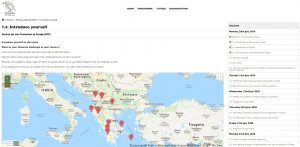
The whole experience – new for so many of us – only serves to underline the importance of the interdisciplinary approach in wetland management and monitoring issues, as well as the irreplaceable value of strong transboundary collaboration, and it has taught us that a willingness to learn combined with new technologies can happily overcome our current difficulties, encouraging a new generation in tackling the appropriate conservation and restoration practices for wetlands.
The PrespaNet project, “Strengthening NGO-led Conservation in the Transboundary Prespa Basin” (2018-2021), is supported by the Prespa Ohrid Nature Trust Fund (PONT) and the Aage V. Jensen Charity Foundation (AVJCF), with facilitation from the German NGO EuroNatur. The three-year project aims to support nature conservation in the Prespa basin through a series of communications and environmental education actions, including this summer school as one in a series of three, as well as scientific research programmes and concrete conservation activities, together with local volunteers. In addition, the project has supported MES and PPNEA to establish local offices in the Prespa region, bringing both organisations closer to the local community and conservation stakeholders, and allowing them to better support the managers of protected areas in the basin in their work.


